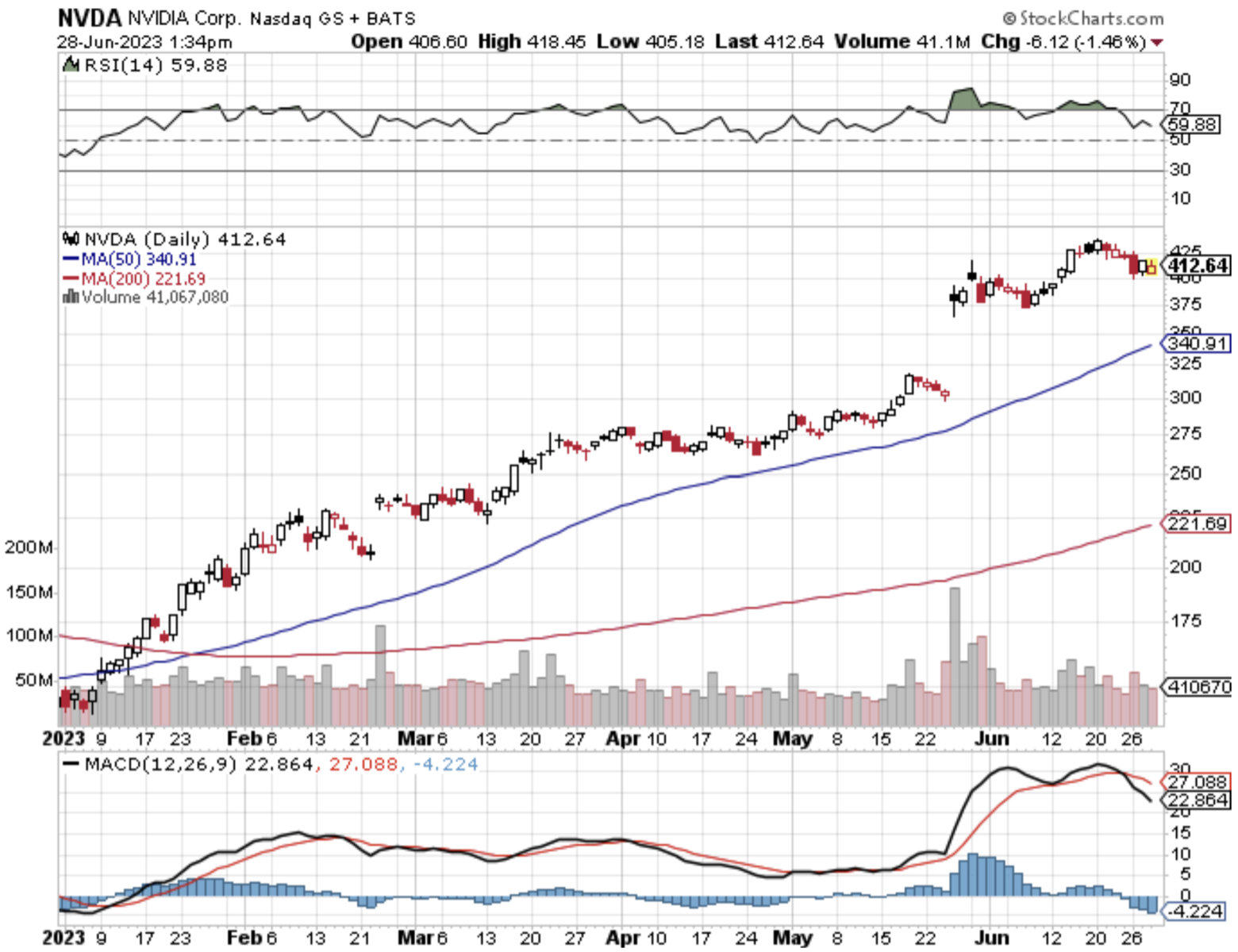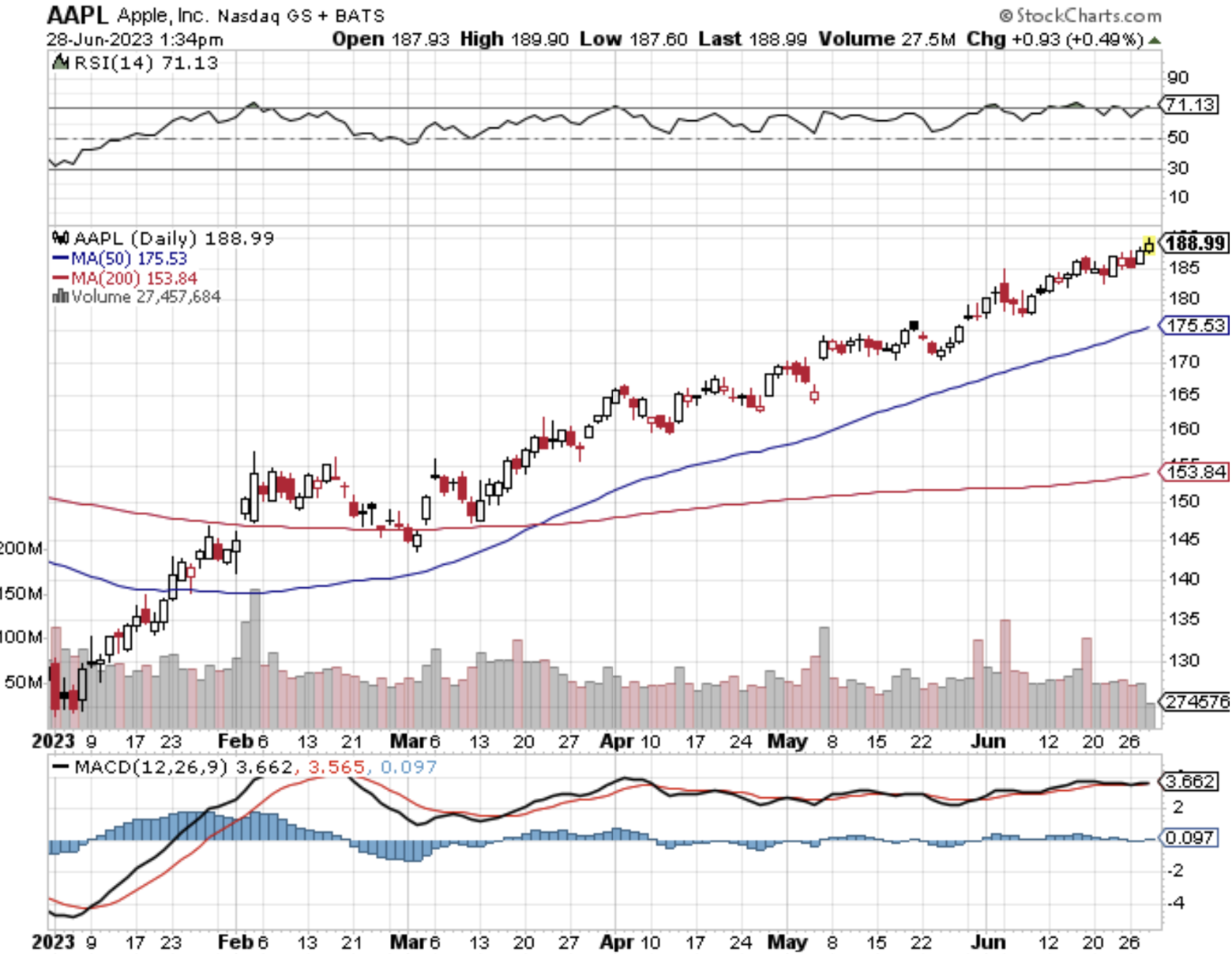Regulation Heats Up
Silicon Valley has gone from the least regulated industry to trending the other way. On a global scale, draconian regulations are rearing their ugly head to really stymy places like China and artificial intelligence.
The European Union just rolled out a slew of proposed regulations on AI that could hamper its ability to embed itself in many tech companies.
The net result is highly bullish for Silicon Valley companies minus the chip companies that are experiencing revenue cuts.
When rules tighten, the entrenched benefit disproportionately and this could trigger a continuation of the tech rally that has been blistering hot this year.
Inversely, it will become even more difficult for start-ups to become unicorns, because they suffer more at smaller sizes to digest the higher amount of regulation that mature tech companies never faced.
Much of this is occurring at the highest level as the White House is considering new restrictions on exports of artificial intelligence chips to China, potentially adding to a list of banned semiconductor technology from Nvidia, Advanced Micro Devices, and other US companies.
The U.S. Department of Commerce could prohibit shipments of chips from Nvidia and others to customers in China as soon as early next month.
Nvidia, which produces graphics chips that drive the technology behind OpenAI Inc’s ChatGPT and Alphabet Inc’s Bard chatbots, is one of those chip companies that could see a slide in revenue in the short term.
Across the pond where governments are specialists at regulation, the European Parliament has approved draft legislation to regulate AI-powered technology.
The Act applies to anyone who creates and disseminates AI systems in the EU, including foreign companies such as Microsoft, Google, and OpenAI.
As outlined in the Act, EU lawmakers seek to limit or prohibit AI technology they classify as unacceptable or high risk.
It’s a little vague who will be deemed high risk but in the crosshairs are technologies such as predictive policing systems and real-time, and remote biometric identification systems.
Silicon Valley cash cows can function without these intrusive elements.
The AI Act would give the European government the authority to levy heavy fines on AI companies that do not abide by its rules.
Financial penalties may be steeper than GDPR penalties, amounting to €40 million or an amount equal to up to 7% of a company’s worldwide annual turnover, whichever is higher.
Beyond the government’s power to enforce the Act, European citizens would have the power to file complaints against AI providers they believe are in breach of the Act.
European officials expect to reach a final agreement on the rules by the end of 2023 after spending years developing the legislation. Such swift and consistent momentum to regulate technology in Europe stands in stark contrast to the United States, where lawmakers are still grappling with initial regulatory steps.
If passed, the Act is expected to become law by 2025 at the earliest.
It’s a lot easier for tech firms to operate in the Wild West when there are no rules, but if there are rules, it’s better than American tech has already built cash cows to keep the party moving right along.
It’s true there won’t be much competition and possibly an oligarchy, but it will translate into much higher share prices for the likes of Apple, Tesla, Meta, Microsoft, Google, and Amazon.



